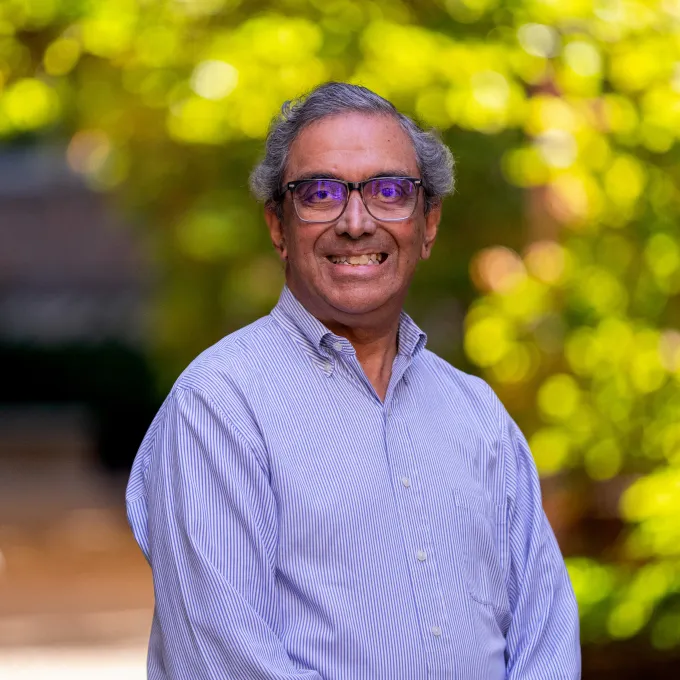Professor Pakrasi conducts research in the broad areas of photosynthesis, systems biology and synthetic biology. He is deeply engaged in bridging research interests in physical and biological sciences.
Himadri Pakrasi's current focus is on bioenergy production in cyanobacteria. His lab studies how cyanobacteria use solar energy to drive the chemistry of life. They work in many disciplines and have projects that focus on determining how the molecular machines that capture solar energy are assembled and maintained, how cyanobacteria respond to environmental changes at the systems level, and how to engineer new strains of cyanobacteria that are capable of channelling solar energy into biochemical production.
Pakrasi participates in the following graduate programs:
- Biochemistry Doctoral Program in the Division of Biology and Biomedical Sciences
- Plant and Microbial Biosciences Doctoral Program in the Division of Biology and Biomedical Sciences
- Molecular Genetics and Genomics Program in the Division of Biology and Biomedical Sciences.
Awards
Fellow, American Association for the Advancement of Science
Fellow, American Academy of Microbiology
Wiley Fellow, Environmental Molecular Sciences Laboratory, Pacific Northwest National Laboratory
Alexander von Humboldt Fellow, Munich University, Germany
Distinguished Fellow, Biosciences Institute, Nagoya University, Japan
Lady Davis Visiting Professor, Hebrew University, Jerusalem, Israel

